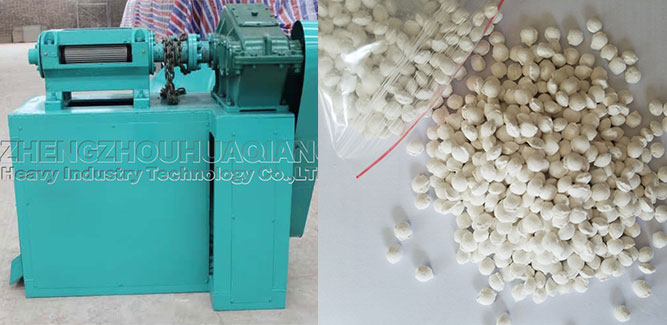
In organic fertilizer production, double roller press granulators are ideal for cutting costs and boosting efficiency thanks to their unique dry granulation process.
1.Lower Energy Use
These granulators shape material through physical pressure. They don't need high-temperature drying or extra binders. Compared to wet granulation, this saves 30% to 50% on energy. Forming granules directly under the rollers cuts power and fuel costs significantly, especially for small to medium-sized fertilizer plants.
2.Higher Granulation Rate
The machine presses powdered organic raw materials into granules using high pressure between rollers and molds. It achieves a granulation rate over 90%, much better than the 70%-80% common with traditional methods. The granules are strong and resist breaking. This means less material needs recycling, improving raw material use and lowering production costs.
3.Wide Adaptability
Double roller press granulators work well with many organic materials after fermentation, like livestock manure and straw. You can also change the molds to make different granule sizes (usually 2-8mm), meeting various market needs. The machine is compact and doesn't take up much space, fitting production lines of different scales.

4.Environmentally Friendly and Efficient
The extrusion granulation uses a closed design, reducing dust escape. Paired with dust collectors, it meets modern environmental standards for green fertilizer production.
5.Easy Maintenance
The granulator has a simple structure and low failure rate, keeping maintenance costs down. Key parts like the rollers and molds use long-lasting wear-resistant alloy, reducing downtime and boosting productivity.
In short, double roller press granulators are key for cutting costs and improving efficiency, offering benefits like energy savings, high efficiency, environmental friendliness, and low maintenance.